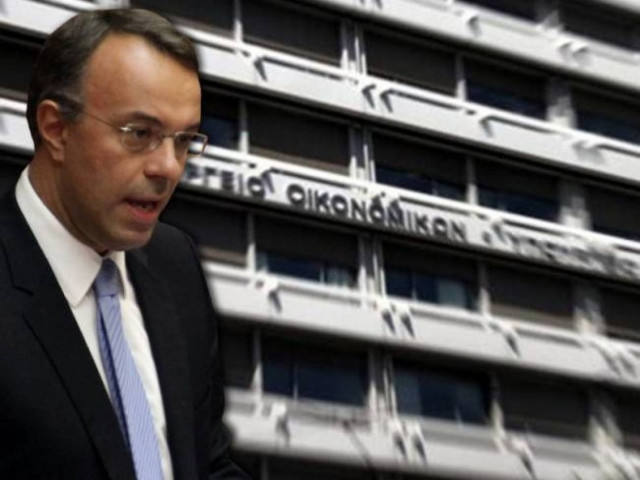Greek economy to grow by 2.9 pct in 2015, draft budget
Greece's 2015 draft budget envisages a primary surplus of 2.9 pct of GDP, or 5.4 billion euros, a 2.9 pct GDP growth rate, a further reduction in the unemployment rate and a decline in the public debt to 160 pct of GDP. Next year's budget will be the first balance budget envisaging a fiscal deficit of 0.2 pct of GDP. The draft budget includes a reduction in an extra solidarity contribution by 30 pct and a program facilitating repayment of overdue debt to the state and pension funds.

"We submit for discussion to the Parliament's Permanent Economics Commission the 2015 draft budget, a process which will be held in an environment of stabilizing the country's public finances and restoring its international position and credibility. We achieve our fiscal goals -for the third successive year- we implement structural changes, chronic interior and external imbalances are eliminated, economic competitiveness is improving, a bank recapitalization program is completed, the country is gradually returning to capital markets and enterprises gain access to capital on better terms. We create the preconditions for a long-term sustainable growth of the Greek economy," Alternate Finance Minister Christos Staikouras said.
The draft budget envisages:
1- The country will return to economic growth rates this year after six years of recession, with the Gross Domestic Product expected to grow by 0.6 pct, from -3.9 pct in 2013. This estimate is based on evidence of a stabilization in private consumption, a recovery in investments and strengthening of exports. "The next two quarter the country is estimated to have positive growth rates," Staikouras said.
2- The unemployment rate will ease, although slightly, with the balance of wage employment flow in the private sector remaining positive. The country's average unemployment rate is estimated to be around 27 pct of the workforce.
3- Fiscal goals are achieved for the third successive year. A primary surplus is expected to reach 3.6 billion euros in 2014, or 2.0 pct of GDP, significantly higher from a target of 1.5 pct of GDP and from 0.8 pct of GDP in 2013. This goal will be achieved despite higher social spending, such as a payment of a social dividend (525 mln euros), restoring salaries and pensions of certain categories of workers, a reduction in a special consumption tax on heating oil and a cut in social contributions. This figure does not include the transfer of state bond yield holdings by European central banks, nor the money from a Securities Market Programme of the European Central Bank. If these figures were included, the primary surplus could reach 6.1 billion euros, or 3.3 pct of GDP.
4- The general government deficit is projected to fall to 0.8 pct of GDP, from 1.9 pct in 2013 and 5.8 pct in 2012.
5- The public debt stabilizes. It is expected to fall to 318.6 billion euros, or 175 pct of GDP, almost unchanged from 2013, while interest spending continues falling to 5.7 billion euros, helped by a significant decline in the interest rates of Treasury bills. Interest spending will fall by 53 pct compared with 2012 and by 65 pct compared with 2011 to 3.1 pct of GDP, from 6.3 pct in 2012 and 7.8 pct in 2011.
Regular budget net revenue, after tax returns, is expected to reach 49.7 billion euros this year, down 1.0 billion euros compared with a goal set in the medium-term program. Regular budget primary spending is expected to reach 42.5 billion euros, down 128 million euros from a medium-term program goal and down by 1.7 billion euros compared with 2013.
Public Investment Programe's payments will total 6.8 billion euros, of which 6.1 billion euros will be distributed to co-funded projects.
Finally, in 2014 Greece will achieve a high primary surplus, for the second successive year, it will return to positive growth rates after six year of deep recession and has returned to international capital markets after four years.
The 2015 draft budget envisages a GDP growth rate of 2.9 pct, resulting from a recovery in private consumption and a strengthening of investments and exports, higher investments, repayment of overdue debt to the private sector, a further improvement in competitiveness and a strengthening of international confidence to the Greek economy. Liquidity conditions is expected to show a significant improvement, while positive impact is projected from an anticipated large increase in tourism in 2015. On the other hand, there were high and increased risks and uncertainties from abroad.
The unemployment rate, is expected to fall to 22.5 pct of the workforce in 2015, from 24.5 pct in 2014, based on national account figures, while employment is projected to rise by 2.6 pct.
The general government's primary surplus is projected to reach 5.4 billion euros, or 2.9 pct of GDP, helped by higher tax revenues, without any additional tax burdens on citizens.
The general government' budget will be balanced, with a fiscal deficit of 0.2 pct of GDP in 2015, from 0.8 pct in 2014 and 1.9 pct in 2013. The draft budget acknowledges there were uncertainties and risks, focusing on general government's agencies, social contribution revenues, pension spending and healthcare spending.
The general government's debt will reach 316 billion euros, or 168 pct of GDP next year, down by seven percentage points compared with 2014, reflecting the achievement of a significant primary surplus and an economic growth. Interest spending will totaled 5.9 billion euros, down 200 million euros from targets.
Net state budget revenue will reach 50.7 billion euros, up by 1.0 billion euros from 2014, while primary spending will reach 41.8 billion euros, up 380 million from targets. The Public Investment Program will totaled 6.4 billion euros.
"The country is entering a long period of sustainable growth rates and primary surpluses, which will raise employment, reduce unemployment and improve the living standards for all citizens," Staikouras said.
























